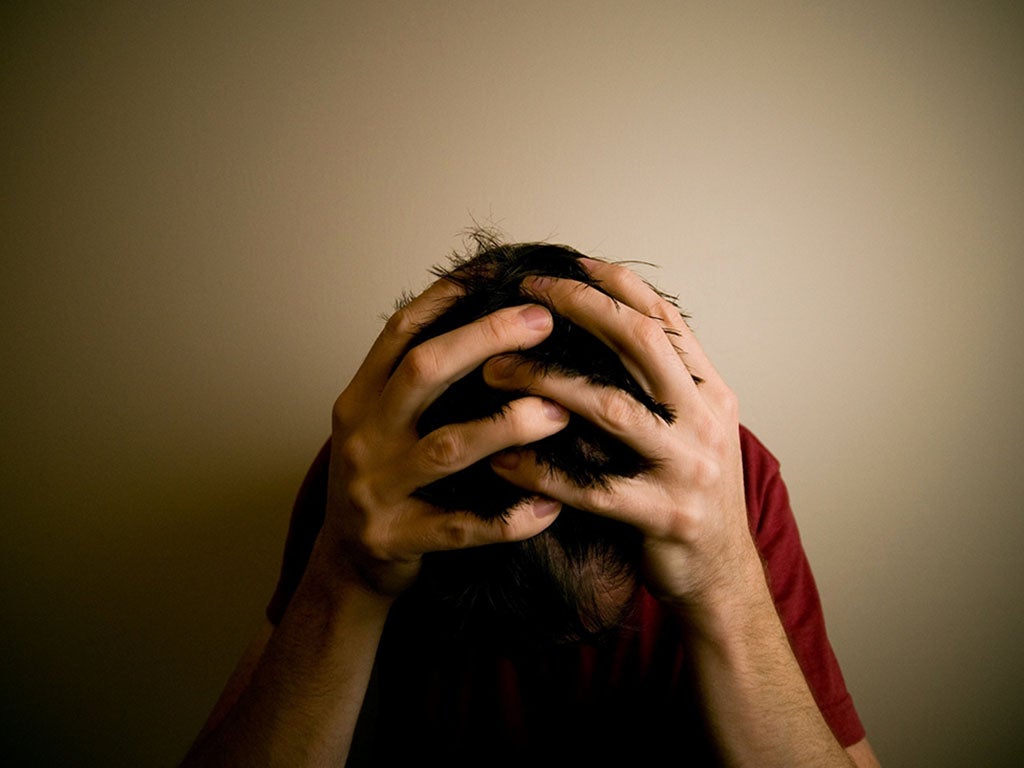What is anxiety? Most Googled search terms reveal our growing concerns
It's good that we're finding out more about it - nearly a fifth of adults in the UK experience anxiety or depression

Your support helps us to tell the story
From reproductive rights to climate change to Big Tech, The Independent is on the ground when the story is developing. Whether it's investigating the financials of Elon Musk's pro-Trump PAC or producing our latest documentary, 'The A Word', which shines a light on the American women fighting for reproductive rights, we know how important it is to parse out the facts from the messaging.
At such a critical moment in US history, we need reporters on the ground. Your donation allows us to keep sending journalists to speak to both sides of the story.
The Independent is trusted by Americans across the entire political spectrum. And unlike many other quality news outlets, we choose not to lock Americans out of our reporting and analysis with paywalls. We believe quality journalism should be available to everyone, paid for by those who can afford it.
Your support makes all the difference.'What is anxiety?' has been revealed as one of the top 10 most searched for questions in the UK in 2014.
Anxiety UK received more than 12,000 calls to its helpline last year (08444 775774), many of whom contacted the charity after finding our information from a Google search.
Anxiety is a normal, if unpleasant, part of life, and it can affect us all in different ways and at different times. Whereas stress is something that will come and go as the external factor causing it (be it a work, relationship or money problems, etc.) comes and goes, anxiety is something that can persist whether or not the cause is clear to the sufferer.
Anxiety can make a person imagine that things in their life are worse than they really are, and prevent them from confronting their fears. Often they will think they are going mad, or that some psychological imbalance is at the heart of their woes. What is important is the recognition that anxiety is normal and exists due to a set of bodily functions that have existed in us from our cave-man days.
Some people have a very identifiable cause for their anxiety; a traumatic incident, lots of stressors or have undergone a significant life event (moving house, getting divorced, having surgery). However, some people don’t have an identifiable cause for their anxiety and it causes them some distress.
The most common behavioural symptom (the things we do when we are anxious) is avoidance. Although avoiding an anxiety provoking situation produces immediate relief from the anxiety, it is only a short term solution.
This means that whilst it may seem like avoiding is the best thing to do at the time, the anxiety often returns the next time that you face the situation and avoiding it will only psychologically reinforce the message that there is danger. The problem with avoidance is that you never get to find out whether your fear about the situation and what would happen is actually true.
The Office for National Statistics reported in 2013 that nearly a fifth of adults in the UK experience anxiety or depression.
There was evidence of anxiety or depression in 19% of people aged 16 or over, with 21% of women reporting the symptoms and 16% of men.
People who were divorced or separated were more likely to have symptoms of mild to moderate mental ill health, with 27% showing signs of the conditions compared with 20% of those who were single, cohabiting or widowed and 16% of those who were married or in a civil partnership.
Higher levels were also recorded by those who were not in paid work – 23% reported they were experiencing mental health issues, compared with 15% of those in paid work.
The ONS also revealed that 38% of those who said they were relatively unhappy with their health had some indication of anxiety or depression, compared with 11% of those who declared themselves to be relatively satisfied with their health.
People with an anxiety disorder should be offered psychological interventions as a first-line treatment in preference to drug treatment. Cognitive behavioural therapy (CBT), for example, has been specifically developed to treat social anxiety disorders in adults, children and young people.
Further information can be found here https://www.anxietyuk.org.uk/
Join our commenting forum
Join thought-provoking conversations, follow other Independent readers and see their replies
Comments